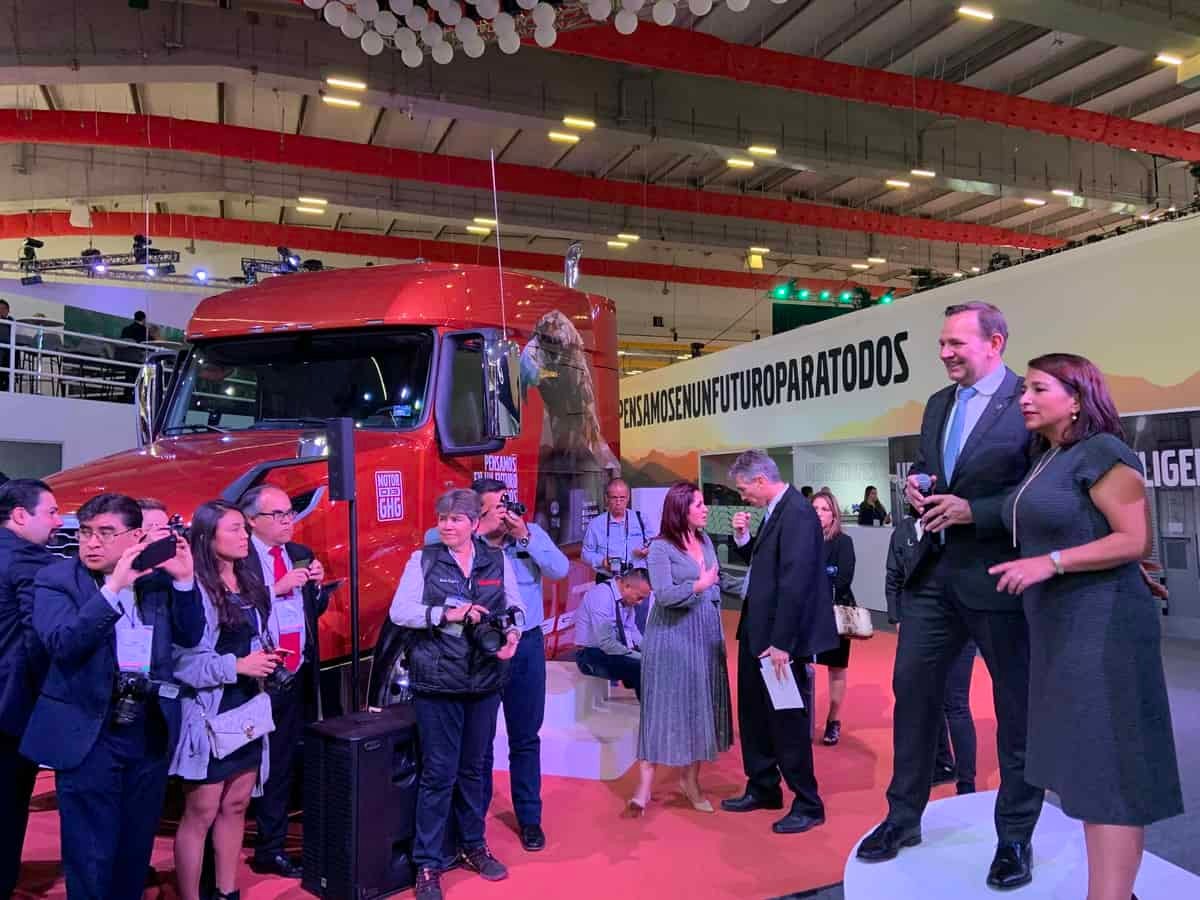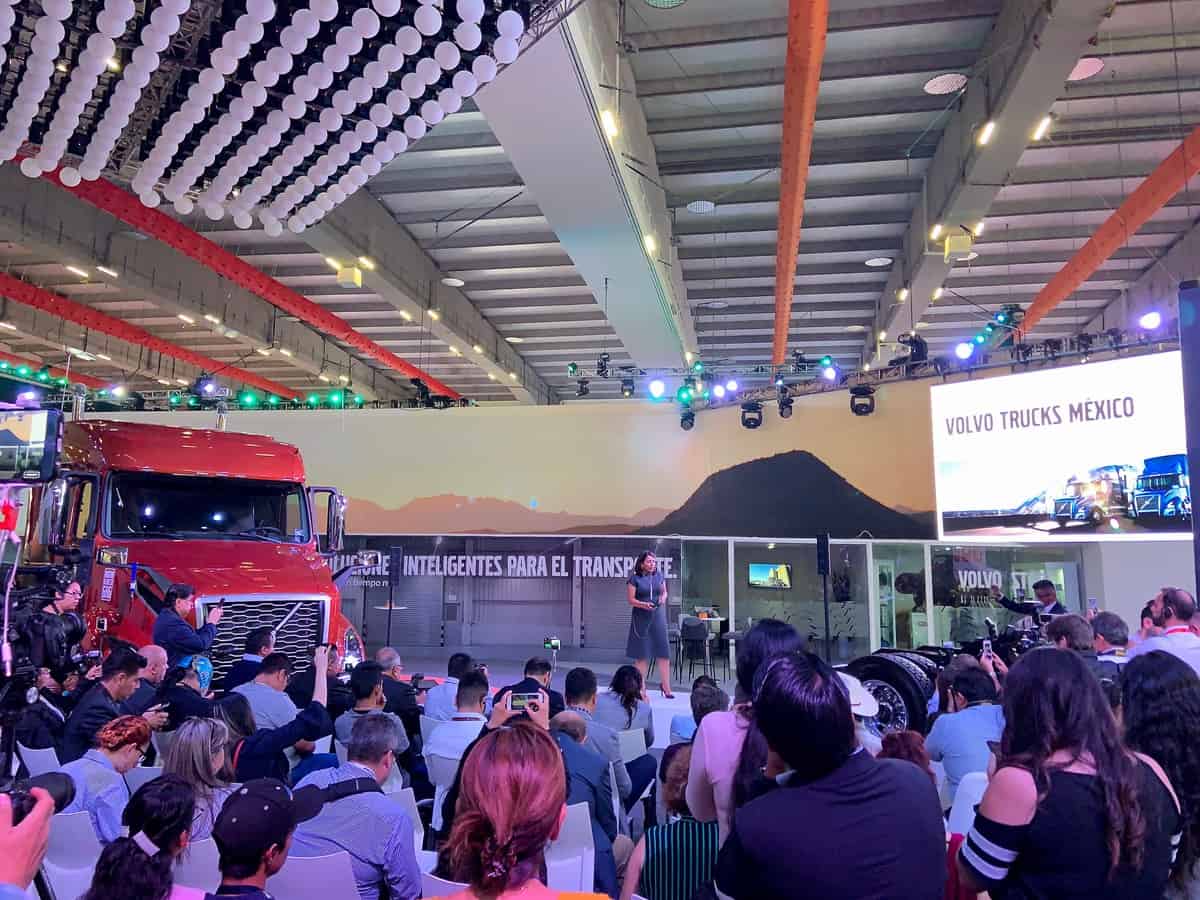Connectivity, electric trucks and autonomous vehicles were highlighted by Peter Voorhoeve, president of Volvo Trucks North America (VTNA) at Transport Expo ANPACT 2019.
The event, which is being held in Puebla, Mexico from October 15-18, is an international exhibition for passenger and freight transportation. The expo is hosted by Mexico’s national association of heavy duty truck and bus manufacturers (ANPACT).
“The transport industry, the trucking industry is a high-moving, fast-facing technology environment,” Voorhoeve said during a Volvo press event at the expo. “We are talking about connectivity. We’re talking about automation and we’re talking about electro-mobility.”
Volvo Group has one million connected assets in service, including 560,000 Volvo trucks, 200,000 of which are in Canada, the U.S. and Mexico, Voorhoeve said.
The company rolled out remote programming for over-the-air vehicle software updates and telematics last year in the United States. Now Volvo is introducing the technology in Mexico.
Connected vehicle technology is enabling improvements in vehicle uptime through remote diagnostics to better manage maintenance and repairs, Voorhoeve said.
Luz Elena Jurado, general director of Volvo Trucks México, said Volvo’s connectivity initiative will allow trucking companies in Mexico to employ remote diagnostics on their vehicles, a service that is not common in the country.

“The point is that the truck is going to arrive at the workshop, and I’m going to fix it very easily and very fast,” Jurado said. “The customer is going to reduce, on average, 50% of the time that they are spending in the workshop. Our main focus is that the trucks are on the road as much of the time as is possible.”
Jurado, who is a 26-year veteran of the transportation industry, became the general director of Volvo Trucks and Mack Trucks in Mexico in May. Mack Trucks is part of the Volvo Group.
Jurado is the first woman Volvo has promoted to head its operation in Mexico, as well as the first woman to run a major heavy duty trucking operation in Mexico’s automotive industry.

Jurado previously spent nine years as Volvo’s general director of financial services in Mexico.
Volvo officials also discussed sustainability, one of the reasons the company is pushing for more GHG (Green House Gas) 17 engines in Mexico, which are more environmentally friendly. Volvo introduced GHG engines in its trucks in the U.S. and Canada over the last several years.
“In tests carried out we have an average fuel efficiency of 8%, although there are results that go as high as 12%,” Jurado said.
Voorhoeve added, “we need to formulate an answer to air pollution – the electric truck is the ultimate answer to a better climate and to a better environment.”
By the end of November, Volvo will have added 249 trucks with GHG engines in Mexico, Voorhoeve said.
“We went directly from the Euro IV to GHG 17, anticipating what the regulations in Mexico provide,” Voorhoeve said. “This decision was oriented to the commitment of caring for the environment, long-term relationships with customers and also to seek greater profitability of the business of distributors.
Vorhoeve and Jurado said Mexico is a key market for Volvo, and that the company aims to have as much as 10% retail market share by 2025.
Volvo Trucks Mexico currently has a market share of around 4.2%, according to Volvo officials. Freightliner is the leader in Mexico with a 37% retail market market share.
“We will gain market share by improving technology and service to our customers, not just by increasing the price of our trucks,” Jurado said.







